First American all-black expedition team climbs Mount Kilimanjaro
It was a unique group of 11 climbers ranging in age from 25 to 60 years old.
For many, climbing Africa's highest mountain in Tanzania may seem like an impossible feat. But for one determined group, they never imagined accomplishing the summit of a lifetime and making history as the first U.S. all-black expedition team to hike Mount Kilimanjaro.
A unique group of 11 climbers, ranging in age from 25 to 60 and from all over the country, they were brought together through Outdoor Afro. A national non-profit organization founded on creating a network that inspires African-American connections and leadership in nature.
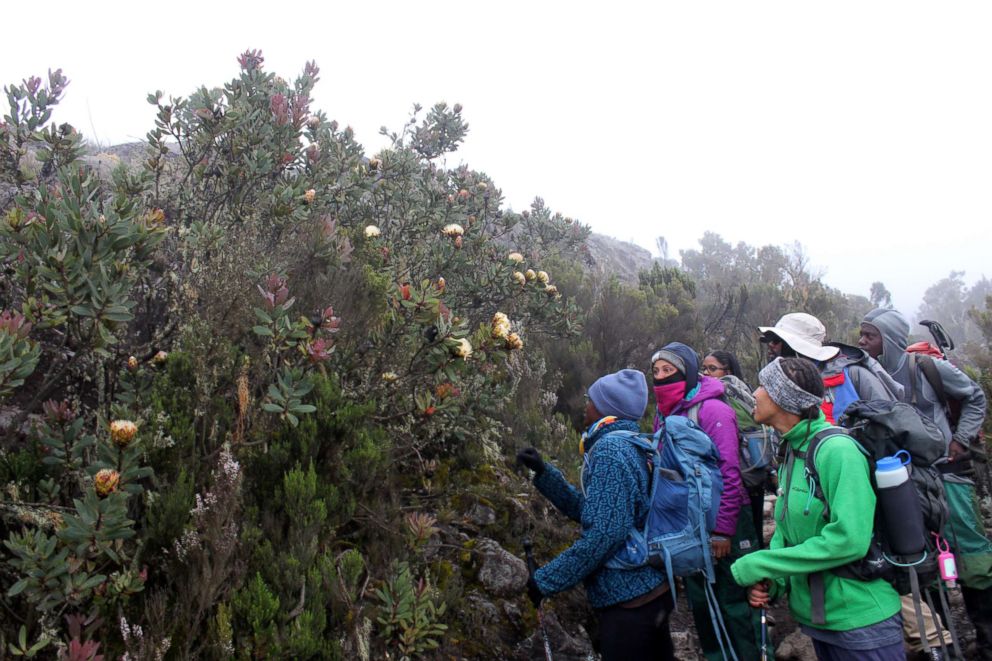
With nearly 80 leaders in 30 states from around the country, Outdoor Afro has connected thousands of people to outdoor experiences with the goal of “changing the face of conservation”. Through the help of sponsorships and team fundraising in perspective states, the organization has provided numerous outdoor events for members on a local and internationally level.
“This experience was about fostering relationships with other like-minded leaders,” said Chaya Harris. As an educational leader in Boston, Harris works for change in her community and wanted to be able to combine that with her favorite hobby of being in nature.
Training for a year, the members were not extreme athletes and preparing for this journey and required a change in their diets and lifestyles. “I would go on 6.5 to 10.5-mile hikes carrying packs with weights on my back once per week,” said Olatunde (Ola) Gholahan, a father of two from Austin, Texas. As the son of a Nigerian, Ola said it meant a great deal to have the opportunity to travel to Africa -- the birthplace of his father.
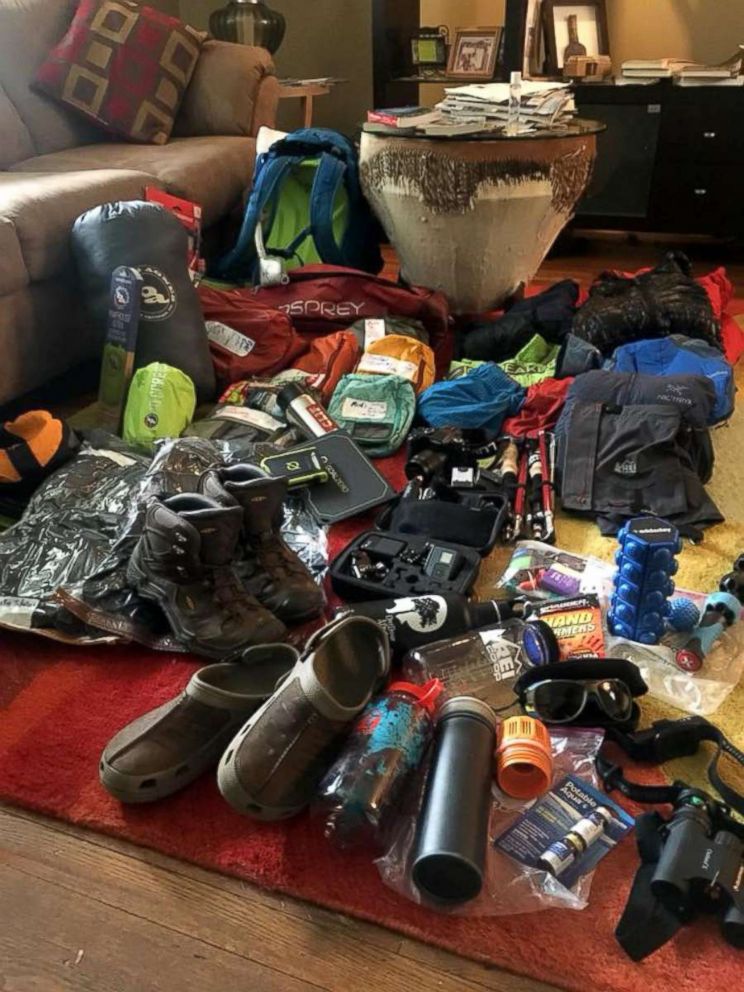
“Would I ever get the chance to go home and get the support of my community and peers to take part in this amazing experience?”
Gholahan said that being the only man in the group to reach the top of Mount Kilimanjaro and to be the only man in a group of women showed him how powerful women are. The women in the group reminded him of this daughters and that was inspiring to tell his daughters that they too can accomplish amazing feats like this.
Although located in separate states, the team conducted daily calls as an opportunity to share their training progress, help each other with resources to pack, and get to know each other better. Outdoor Afro also held a Leadership Summit in Los Angeles that allowed leaders to unite before the journey.
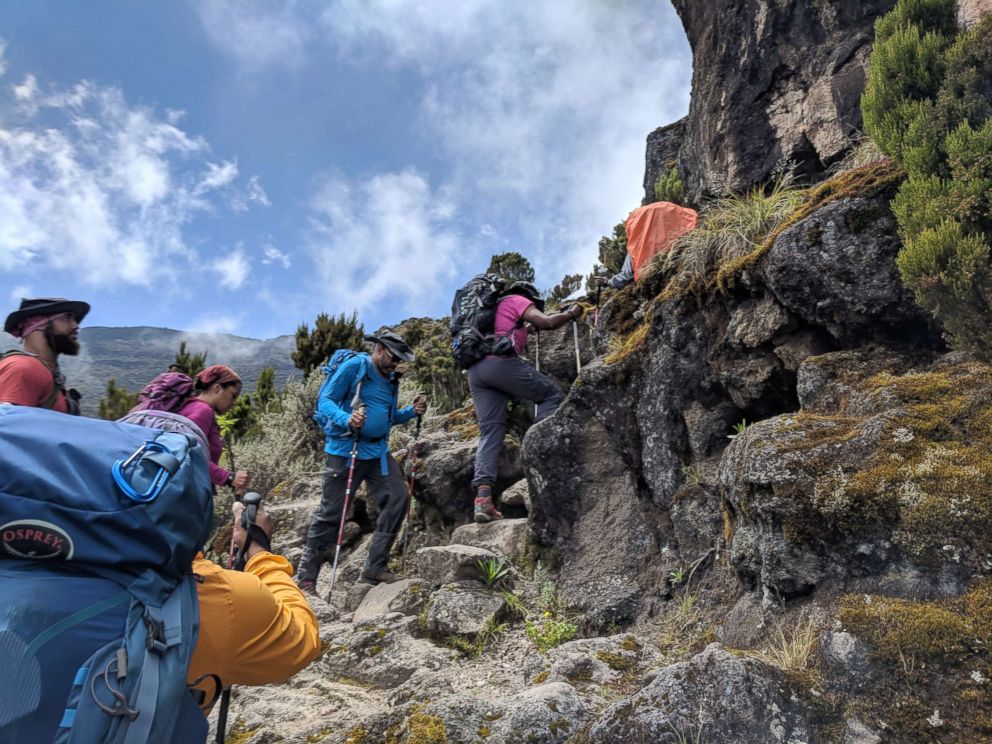
Over the course of five days, the team set off climbing through the south-western slopes of the mountain, to the main peak Kibo, with the western glaciers made visible by the rugged high-altitude desert of rocks. Hiking four to six hours each day, covering thousands of feet, the hikers increased their elevation until reaching Barafu Hut, a campsite in Kilimanjaro National Park, before embarking on the summit.
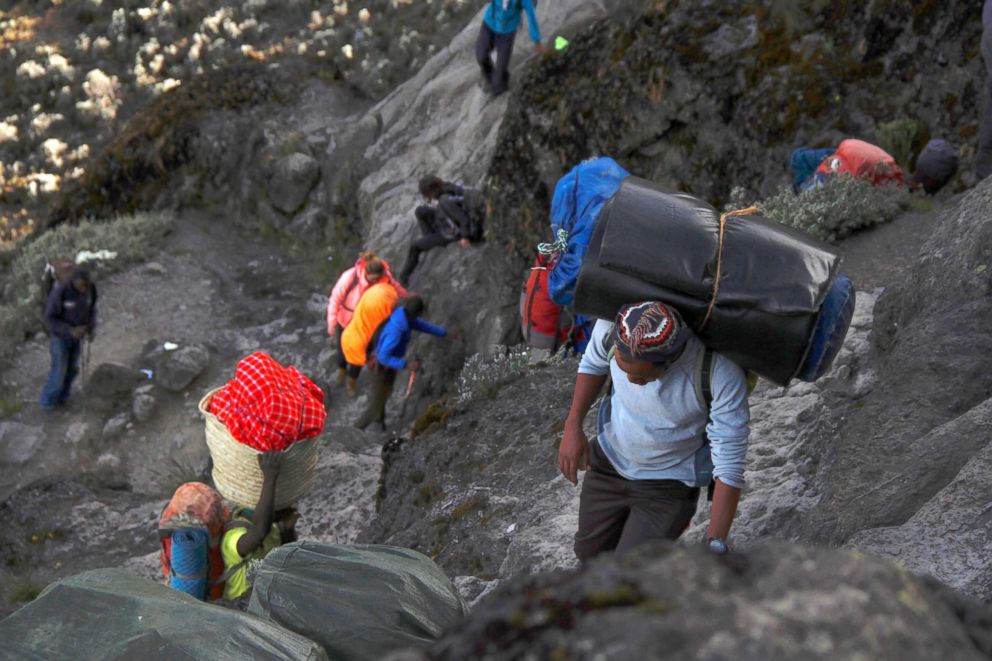
Beginning their ascent at 11 p.m,. the climbers endured difficult and perilous conditions. Walking up a 45-degree incline in pitch-black darkness, with decreasing oxygen levels and a relentless wind that disoriented the group -- they relied on their trust in the person in front of them and a determination to keep pushing forward.
"I'm going to make it, the sun will come up -- I just kept repeating that to myself. I had to make it to the top for my family, my support system, the people back in Boston -- I'm doing this for my team,” says Chaya Harris.
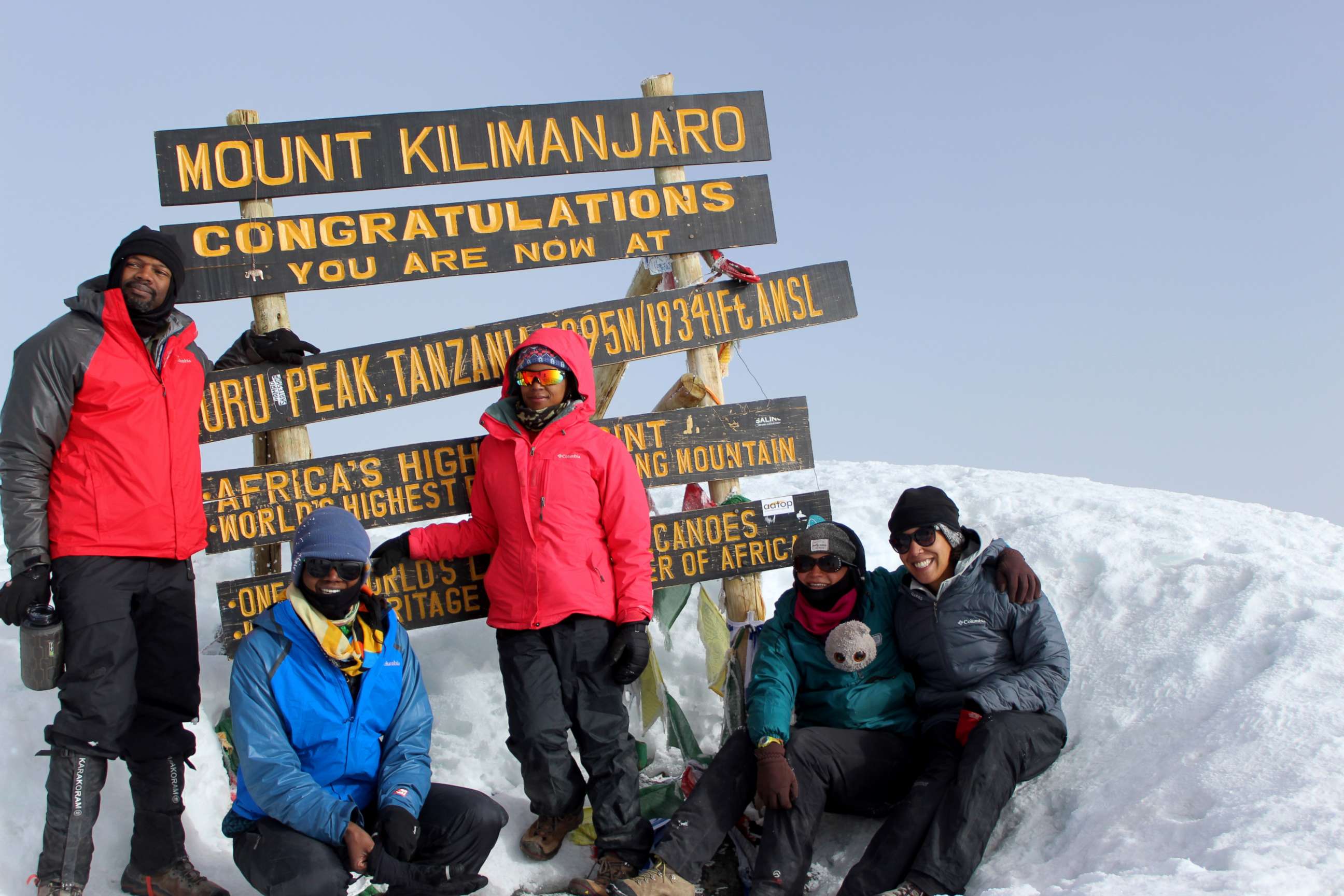
Out of the 11 climbers, only five made it to the top of Mount Kilimanjaro but for all the members, reaching different points of the journey was special in many ways.
For 59-year-old Ray Smith, an Air Force veteran from Washington, DC, the journey was about “going beyond one’s original point to create your own summit.” As a cancer survivor, Smith says traveling to Mount Kilimanjaro was a testament to his endurance and to be a part of a team of black leaders in the outdoors that were supportive to each other was crucial.
Outdoor Afro has created a network of leaders that are connected by not having extreme athletic backgrounds but an admiration for the outdoors and adventures. The climbers that journeyed to Mount Kilimanjaro were challenged by what it means to be a leader in a group on a physically-challenging expedition.
The organization has helped to push barriers by training members how they can empower their community through nature.
“There are misconceptions about Black people not having a global perspective and this journey allowed us to change the traditional narrative to reflect what it means to be a person of color and adventurous,” states Chaya Harris.